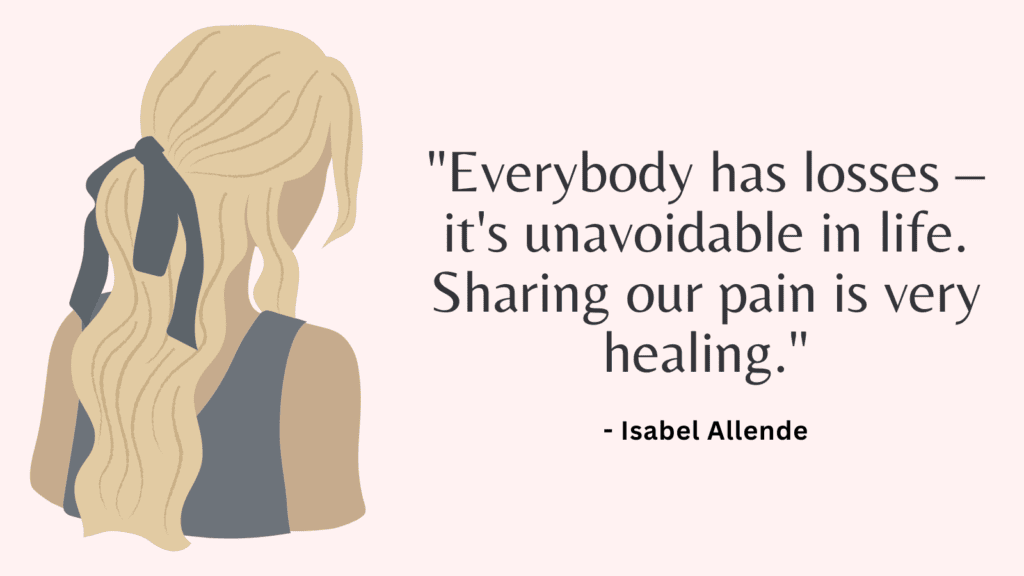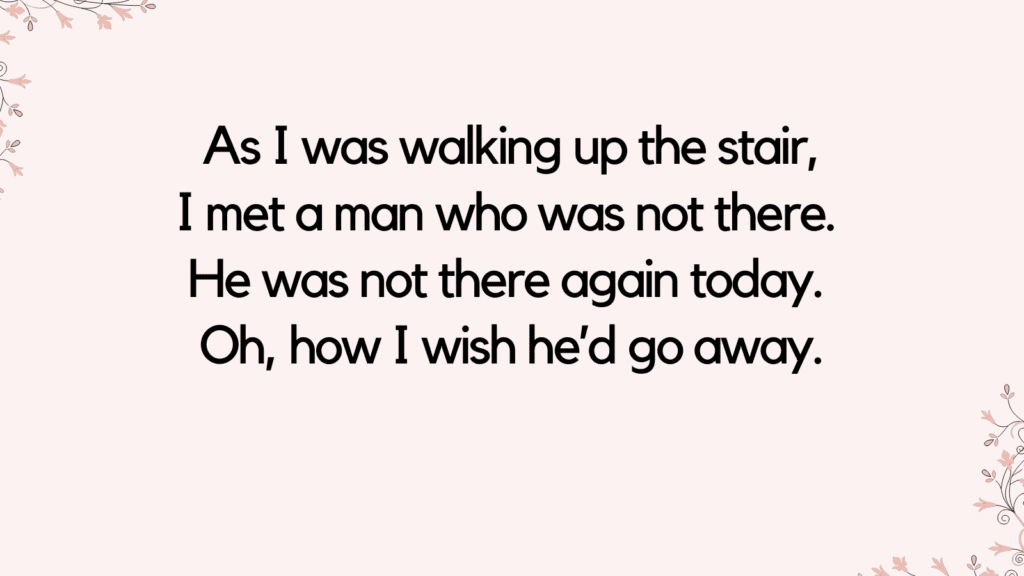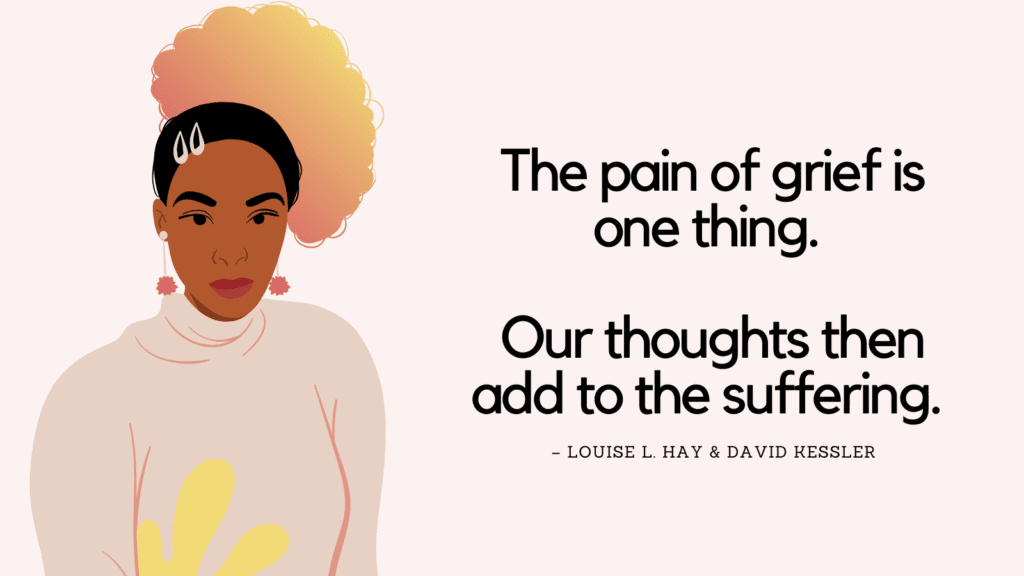This post contains some of the best grief during the holidays quotes to help you on your grief journey.
Grief During The Holidays Quotes
1. “Holidays are hard. Period.” – Gary Roe
2. “Setting your intention to mourn and heal during the holidays—and beyond—is one important way to move forward in your grief journey. Harnessing the power of ritual is another.” – Alan D. Wolfelt
3. “During your time of grief, the very rituals of the holidays can help you survive them. Try participating in some of your normal holiday traditions but with a focus on your grief. When you light candles in your home, do it in honor of the person who died. When you sing holiday songs, allow yourself to embrace any grief feelings the music stirs within you. Attending services at your place of worship, praying and meditating are other meaningful ways to tap into the healing power of ritual this holiday season.” – Alan D. Wolfelt
4. “When your grief overwhelms you this holiday season, try focusing on the now. Your grief wants you to live in the past through memories of the precious person who died. Remembering is indeed important, and your memories will always be a special part of your life.” – Alan D. Wolfelt
Related: Best +30 Grief Activities For Adults (+FREE Worksheets PDF)
5. “Let your holiday grief be what it is. And let yourself—your new, grieving self—be who you are.” – Alan D. Wolfelt
6. “Grieving well is not about getting over your loved one. You don’t get over a person. You learn to get through this time in the healthiest way possible. And that includes Thanksgiving, the Christmas holidays, and all the other special days of the year. Every one of them will remind you of your loss, and that’s okay.” – Gary Roe
7. “Mourners need downtime to retreat into their grief. The holidays provide a lull in our normally hectic schedules.” – Alan D. Wolfelt
8. “Because you’re in mourning this year, you may feel like not “doing” the holidays at all. That’s an understandable thought! But your family’s holiday traditions are an important part of your shared history as well as your continuing lives. You may find yourself wanting to celebrate as you always have for memory’s sake. You might also consider simplifying your holiday rituals instead of abandoning them altogether. Keep the traditions that matter most to you and set the others aside, at least for now” – Alan D. Wolfelt
9. “Accept your unique thoughts and feelings this holiday season. Find ways to mourn that work for you. When others judge your grief, don’t take it to heart.” – Alan D. Wolfelt
10. “During the holidays, your pain may be closer to the surface. The ritual and intimacy of the holidays may make you more emotional. Remember that your emotions are normal and natural, and when you feel them it means it’s time for you to feel them. If you keep yourself too busy during the holidays, you may leave yourself no time to work on this critical need of mourning. Don’t overschedule and don’t try to “keep busy” simply to avoid the pain.” – Alan D. Wolfelt
Related: ACT For Grief and Loss: 6 Powerful Tools and Worksheets to Help You Move Forward with Grief – Acceptance and Commitment Therapy (ACT)
11. “A wonderful thing about the holidays is that they encourage us to remember those we love. Even though it may hurt to remember, don’t forget that remembering the past makes hoping for the future possible.” – Alan D. Wolfelt
12. “Even your holiday self has changed. You may have gone from loving the holidays to dreading them or from being a big holiday baker to not wanting to spend a minute in the kitchen. The holidays will be different this year in part because you’re different this year. You need to re-anchor yourself, to reconstruct your self-identity. This is arduous and painful work.” – Alan D. Wolfelt
13. “Part of your struggle with the holidays will likely involve trying to find ongoing meaning in them. It may seem like the holidays are meaningless this year. Trust that in time and through the work of mourning, you will find meaning in the holidays again.” – Alan D. Wolfelt
14. “As mourners, we need the love and understanding of others if we are to heal. When your friends and family reach out to you during the holidays, accept their support. Let them spend time with you and take care of you. You need their help and they need to give it. Don’t feel ashamed by your dependence on others right now. Instead, revel in the knowledge that others care about you.” – Alan D. Wolfelt
15. “Unfortunately, our society places too much value on “carrying on” and “doing well” after a death. So, many mourners are abandoned by their friends and family soon after the death. If you find yourself alone this holiday season, reach out to neighbors, people at your place of worship, or a grief support group.” – Alan D. Wolfelt
Related: Resilient Grieving: Best 17 Ways To Manage Grief In The Workplace (+FREE Grief Worksheets)
16. “Your holidays will be different because your life has been altered forever. Someone very special to you is missing. No matter what the holiday, you probably have powerful memories of your loved one associated with it. These wonderful (or sometimes painful) experiences of the past can be triggered in an instant.” – Gary Roe
17. “This holiday season, you will probably experience a multitude of different emotions in a wave-like fashion. You will also likely encounter more than one need of mourning at the same time. Be compassionate with yourself as you experience your own unique grief journey.” – Alan D. Wolfelt
18. “You don’t need to be strong— you need to embrace your pain. Tears are a sacred form of mourning. You don’t get over your grief—you learn to live with it. And during the holidays, you need to express your feelings, happy and sad.” – Alan D. Wolfelt
19. “Our society teaches us that emotional pain is to be avoided, not embraced, yet it is only in moving toward our grief that we can be healed. The holidays may well help you move toward your grief, and that is a good thing.” – Alan D. Wolfelt
Related: Grieving Someone Who Is Still Alive – Ambiguous Grief
20. “Muster the strength and courage to tell the people in your life what your wishes are for the holidays. If you’d like their company but prefer to gather somewhere different than you usually do, say so. If you’d rather skip some of the celebrations this year, tell them. If you’re feeling unsure about how to spend the holidays, tell them.” – Alan D. Wolfelt
21. “If you normally spend these holidays in the company of people you love, deciding to spend them alone may be a mistake. Remember—you need to accept the love and support of others if you are to heal. Some alone time is certainly necessary when you are grieving, but holiday solitude may only heighten depression and waylay hope.” – Alan D. Wolfelt
22. “You may find yourself feeling guilty if now and then you experience joy during the holiday season. It’s common for mourners to feel it’s a betrayal of the person who died if they are not sad all the time. Experiencing moments of happiness and joy during the holidays does not mean you didn’t deeply love the person who died. It merely means that you are alive and can continue to live.” – Alan D. Wolfelt
Related: Cumulative Grief: How To Cope With Bereavement Overload?
23. “Start a meaningful new holiday tradition by giving a gift in the name of the person who died. What cause, event or activity was important to the person who died? Choose something that was near and dear to the person who died and support it with an annual gift at holiday time.” – Alan D. Wolfelt
24. “During the holidays, joy and laughter are perhaps the very essence of our celebrations. You may not feel like laughing much this holiday season, however, and that’s OK. But if and when you do find yourself laughing, don’t feel guilty. Your continued capacity for happiness is not a betrayal of the person who died. Rather, it is an early sign that you will learn how to live fully again while forever grieving the death of someone loved.” – Alan D. Wolfelt
25. “Mourners are often overwhelmed by the many tasks of daily living, and cleaning may feel particularly burdensome to you during the busy holidays. Here’s a thought: Let cleaning worries go! The health inspector probably won’t shut you down, at least not for another month or two.” – Alan D. Wolfelt
26. “Many families despair at the thought of the now-empty holiday dinner table chair normally occupied by the person who died. The empty chair is too painfully blatant a reminder that the person is gone forever. One way to face the specter of the empty chair is to fill it with someone else. Maybe you could invite a friend or neighbor to your holiday dinner.” – Alan D. Wolfelt
Related: Grief Resources (FREE Worksheets, APPS, Podcasts, TED Talks, Books)
27. “The holidays are full of group rituals. Family dinners and gatherings, services at places of worship, decorating and cooking—all of these traditional rituals are celebrated in the company of others. But this holiday, you might find it healing to add your own personal, private ritual in memory of the person who died. You might bring flowers to the cemetery or scattering site, for example, and spend a few minutes in quiet connection. Or you could spend an afternoon doing something that was meaningful to the person who died.” – Alan D. Wolfelt
28. “You may find that those around you are uncomfortable with your tears. As a society, we’re often not so good at witnessing others in pain. During the “happy holidays,” tears can seem especially out of place. Explain to your friends and family that you need to cry right now— even if it is the holidays (or because it’s the holidays!)— and that they can help by allowing you to.” – Alan D. Wolfelt
29. “You probably know several people who enjoy hugging or physical touching. If you’re comfortable with their touch, encourage it during the holidays. Their contact may help you survive a time that otherwise seems unsurvivable. Take advantage of the physical presence of friends and family during the holidays. Sit near them and feel their loving energy.” – Alan D. Wolfelt
30. “There’s something about holidays that bring up and magnify our losses. We delight in gathering as families, but we’re also keenly aware of those who are missing. Wonderful memories can bring forth both joy and sadness.” – Gary Roe
31. “Grief is messy. Holidays are messy.” – Gary Roe
32. “Being kind to yourself and accepting where you are will be the key to navigating holidays in a healthy manner. Yes, this holiday will be different, but it can still be good.” – Gary Roe
33. “This holiday can’t be about pleasing others and making people happy. People-pleasing is like a treadmill. Once you step on, it’s hard to get off. The longer you stay on, the faster the treadmill goes. You just end up exhausting yourself while going nowhere.” – Gary Roe
34. “People who don’t do what’s good for them in times of grief usually end up resenting it (and the people involved) later. You can’t afford to let the holidays control you. You have a choice about where to go, what to be involved in, and with whom.” – Gary Roe
35. “Holidays will bump your bruises. Pain and loneliness are natural results. In other words, feeling alone is okay. It’s normal when you’re grieving. What do you do when the loneliness strikes? Just feel it. Acknowledge it. Try saying out loud, “I feel lonely.” Then try going further. “I feel lonely because I miss you. I miss…” This gets your emotions out on the table. As you express them, they will often subside. The more you attempt to hide them, the more they will leak out in your life in other ways. Your bruise is being bumped. You need to feel the pain.” – Gary Roe
Related: How To Help A Grieving Parent? (+FREE Worksheets For Grief)

How To Cope With Grief?
Coping with grief can be a difficult and painful process. Here are some healthy ways to cope:
1. Allow Yourself To Feel Your Emotions
Grief can be overwhelming, but it’s important to let yourself experience the sadness, anger, or other feelings that come up.
2. Take Care of Yourself
Grief can take a toll on your body and mind, so it’s important to make sure you’re taking care of yourself. Eat well-balanced meals, exercise regularly, and get adequate rest.
3. Get Professional Help
Consider seeking the help of a therapist or counselor who can provide guidance and support through the grieving process.
4. Connect With Others
Join a support group where you can connect with others who are going through similar experiences.
5. Practice Relaxation Techniques
Yoga, meditation, deep breathing, and other relaxation techniques can help you manage stress and anxiety.
6. Reconnect With Activities You Enjoy
Engage in activities that bring you joy and provide a healthy distraction from grief.
7. Remember The Good Times
Recall happy memories of the person or thing you have lost. Celebrate their life and the impact they had on you.
8. Learn From The Experience
Grief can be a powerful teacher, helping us to appreciate the present, connect more deeply with our values, and gain a greater understanding of ourselves and others.
9. Give Back
Consider volunteering or engaging in activities that honor the memory of the person or thing you have lost.
Helping others can be a way to channel your grief into something positive.
Conclusion
Remember that everyone copes with grief differently and there’s no “right” way to do it. Allow yourself time to grieve and be patient with yourself as you work through the process.



